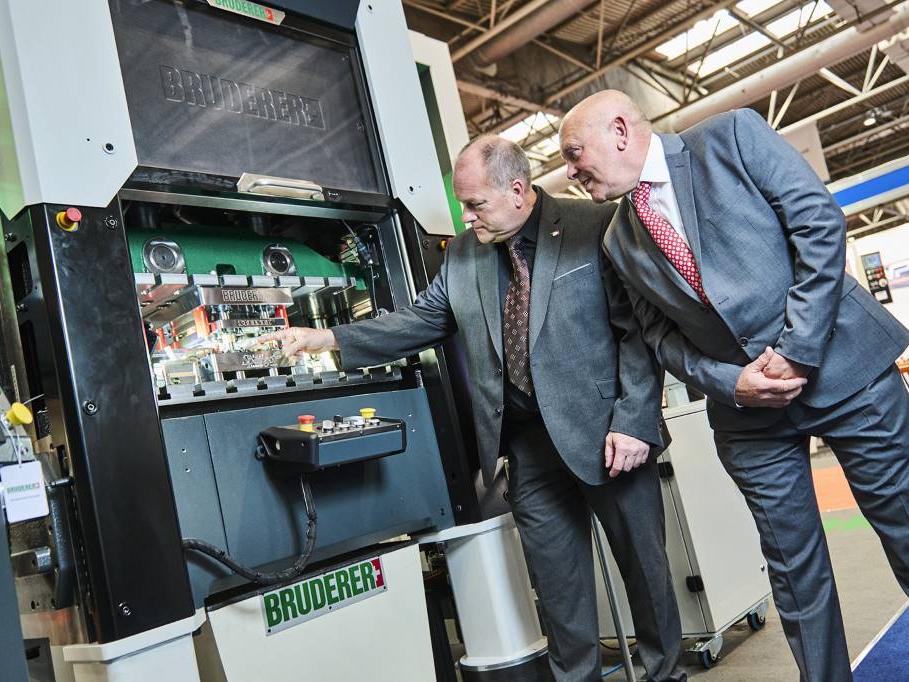Report: 4 key opportunities UK manufacturing should utilise to grow market share

A new report from Santander UK and EEF on the UK’s mechanical equipment industry has concluded that growth will come from intelligent manufacturing, Industry 4.0 technologies, and renewable energy demand
A new report from Santander UK and EEF on the UK’s mechanical equipment industry has concluded that future growth will come from intelligent manufacturing, Industry 4.0 technologies, and renewable energy demand.
Other near-term opportunities include upscaling the ‘after sales and service’ market, fulfilling demand from the global construction equipment industry, and new funding models such as leasing. Export opportunities are key for the sector with over half the demand generated from overseas sales.
Manufacturing as a sector enjoyed an excellent year in 2017, expanding at its fastest pace since 2014. Encouragingly, the healthy performance was broad across sub sectors, but as the industry continues to thrive, the strong global economy is also bringing investment back online, and pushing the UK’s £11 billion mechanical equipment manufacturers to keep up with the digitalisation and modernisation of the supply chain.
Near-term opportunities for mechanical equipment manufacturers
While automation, digitalisation and the renewables sector are longterm, global trends which are central to the future growth and success of the UK’s mechanical equipment industry, there are a number of near-term opportunities which manufacturers should grasp in order grow their market share and output, according to the EEF and Santander UK.
After sales market
The nature of mechanical equipment products – namely their role as a capital investment by other businesses – means they tend to have longer lifespans than products in other branches of manufacturing. This has led to the after sales industry, and “servitisation” business models growing in importance for the sector.
Global construction equipment industry
The global construction equipment market is set to grow to a value of $180.7 billion by 2021. This would equal a 7% compound annual growth rate since 2015, and represents a major opportunity for specialised construction equipment manufacturers in the UK.
New financial models – leasing
Purchasing mechanical equipment represents an important investment in terms of future productivity, but may not always be viable. This has led to some big companies in the mechanical equipment market starting to use their size, and financial clout, to offer finance plans in order to increase their sales and revenues, and to provide an additional service to clients.
According to the report, UK government schemes including the Clean Growth Strategy, and carbon budgets which have the aim of reducing greenhouse gas emissions by 80% by 2050, will see renewable energy technologies rapidly grow in importance. Mechanical equipment manufacturers, and specifically specialised oil extraction equipment manufacturers will need to adapt and focus on the equipment needed for the production and distribution of renewable energy equipment – for example, hydro-electrical turbines, fuel cells and biomass systems.
Overseas sales
The report emphasises that trade is essential to the mechanical equipment sector’s standing and performance. Some 55% of all UK firms are classified as either an importer and/or exporter of goods and services, considerably higher than the manufacturing average at 33.5%, and the mechanical equipment sector is one of the most export intensive, with almost half of its demand generated from overseas sales.
In 2017, the sector generated £33 billion from exports and since 2000, the sector has seen foreign demand for its goods increase by 46%. Despite this, the sector has seen its trade position deteriorate as other countries, both developed and developing, have expanded their mechanical equipment industries at the expense of the UK.
Martyn Jenkins, economist at EEF, said: “Our sector bulletin shines a light on the often less heralded mechanical equipment sector, highlighting its role as a critical pillar in manufacturing and wider UK economy. The success of the sector in continuing to evolve its production processes in the digital age, as well as seek out new markets abroad stands it in good stead for the future. That said, policy makers must continue to support this vital sector by ensuring the UK business environment is cost competitive, trade links are retained and the longstanding productivity issue is addressed.”
EEF www.eef.org.uk
Santander UK www.santander.co.uk/uk














